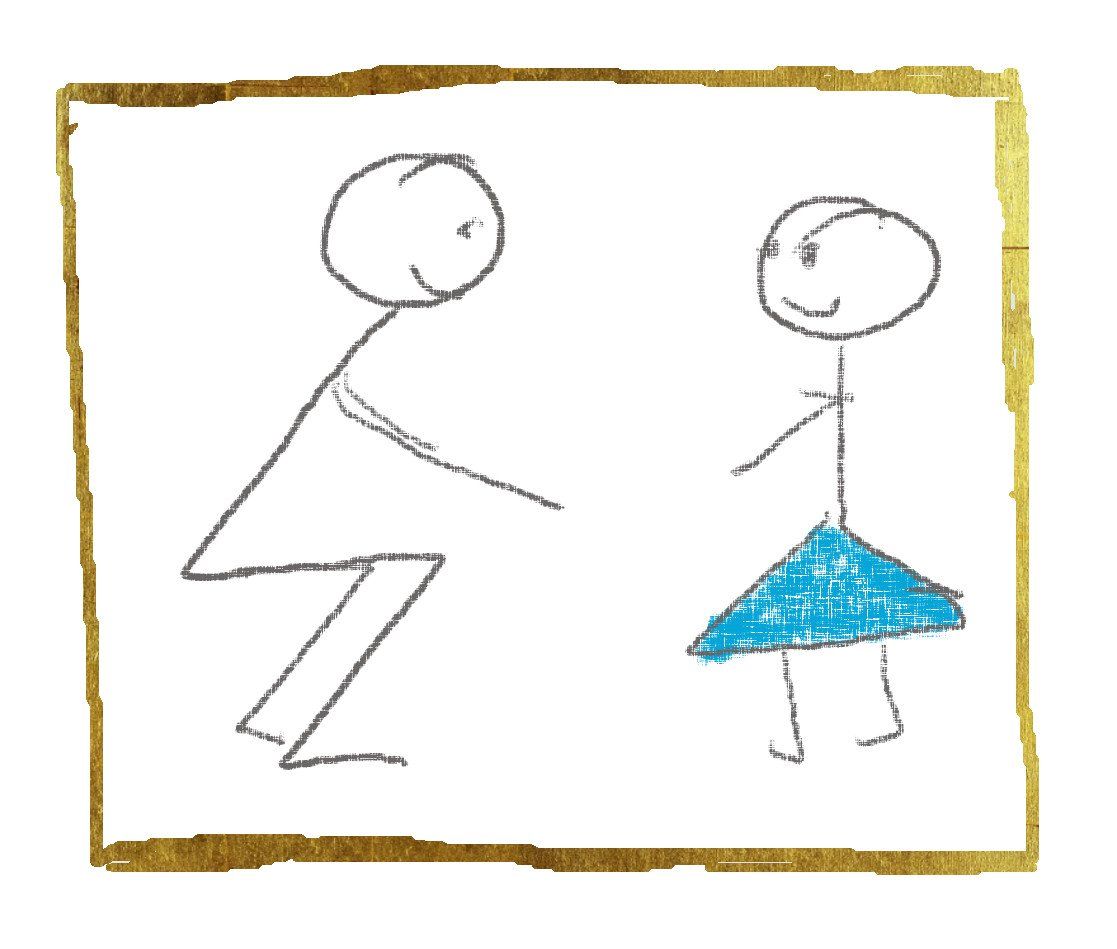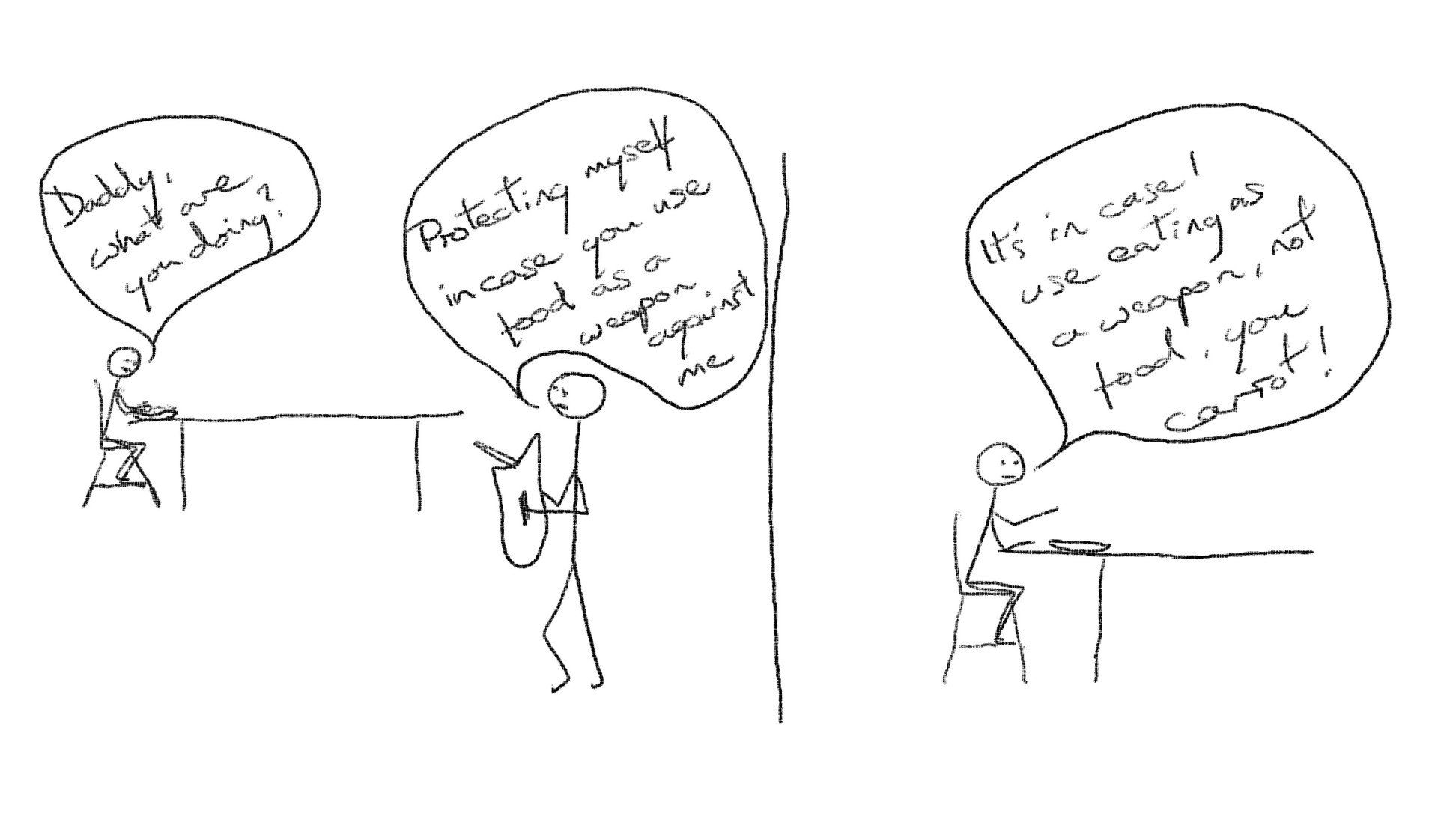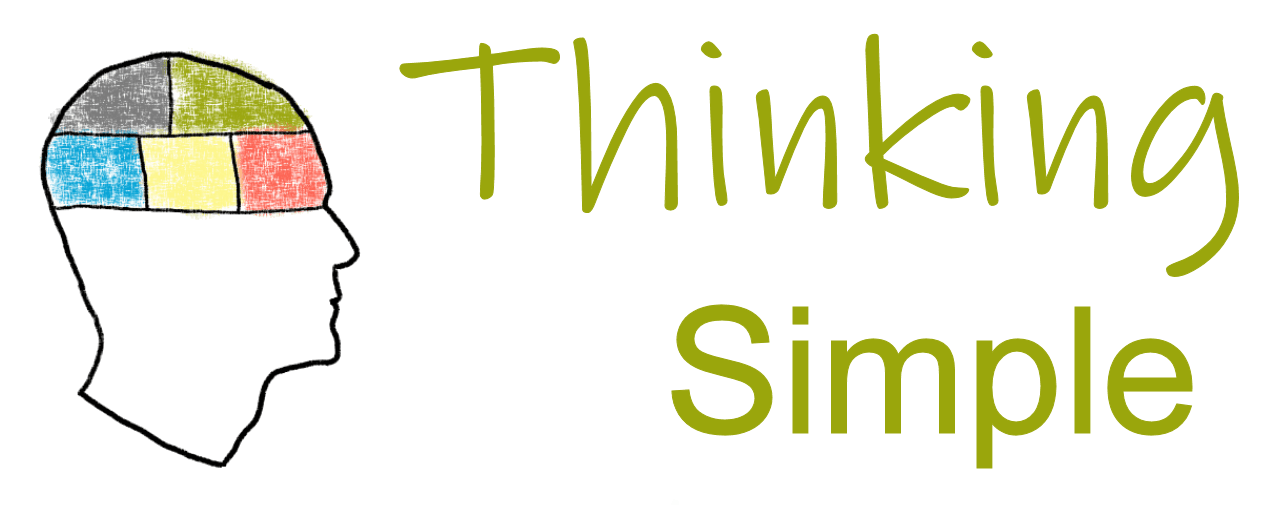
Are You...
Making Mealtimes A Battleground?
Potential Consequences
The Damage We Cause

Our desire to help our children eat healthily can easily lead us to overstep the mark, with potentially far reaching consequences.
"You can't have your pudding if you don't eat your greens. How can you have any pudding if you don't eat your greens?!!"
Food is an extremely powerful force in all our lives.
Unfortunately, wherever power lies, so does the potential for corruption.
There are several ways we can corrupt our children's relationship to food.
For example:
- we can use it as a substitute for love and attention - giving treats when we're too tired or busy to give what our children really want from us
- we can allow our children to use it as a way to get our attention - "Mummy.... I'm hungry"
- we can use it to control our children's behaviour - "If you don't do your homework you can't have an ice cream"
I will cover these areas and others in a separate article.
For now, I will focus on the corruption most common when trying to overcome our children's reluctance to eat... Coercion.
"You can lead a horse to water, but you can't..."
We all know the old adage about trying to make a horse drink. We can laugh as we imagine the horse's stubborn refusal and our own futile attempts at well meaning coercion.
However, in reality, there is arguably nothing so demeaning and potentially so damaging, as trying to control something we actually have no right to control. No matter how well intentioned we are.
None of us should be expected to eat something we do not want, or feel safe with, and none of us have the right to coerce anyone else to do likewise.
Young children do not starve themselves to death.
They do not 'choose' to eat a narrow, boring, restricted diet.
Given the opportunity they will develop a healthy attitude to food.
When we attempt to coerce our children to eat things their bodies are telling them not to, for whatever reasons, we are in danger of causing long term permanent damage that is far greater than any short term nutritional deficiency.
We risk inhibiting our children's desire to try new foods.
The first and most obvious danger when pushing our children to eat is that we achieve precisely the opposite.
The instinct in our children not to eat potentially life threatening poisons is very strong, far stronger than anything we have to throw at them.
The more we try to make them eat, the more we diminish our children's sense of control over their own eating. The likely result is that they will become even stronger in their determination to resist, until it reaches a point where any instinct to open up to new possibilities is lost and they become permanently locked in a narrow set of safe foods.
We risk breaking the link with what our children's bodies are telling them.
For most of us, if we listen carefully enough, our bodies will tell us what to eat and how much of it.
We have to trust that the same is true of our children.
When my daughter was younger and pushed her bowl, or plate away and saying she'd had enough, I sometimes found it impossible to stop myself saying:
"Are you absolutely sure you've had enough?"
Or words to that effect.
Never once did she say, "Oh sorry Daddy, I was wrong, I'll just finish up what's on my plate", or even taken another mouthful. Literally NEVER.
And when I said:
"This is delicious, would you like to try some?"
She's never once said "Yes". Literally NEVER.
The temptation to ignore what my daughter's body was telling her and to try and coerce her to eat something against her will was so powerful I used to have to look away and keep my mouth tight shut for fear of showing my anxiety and frustration.
If we do overstep the natural bounds of our authority, not only do we risk turning the meal into a battleground, we risk breaking the link between what our children's bodies are telling them and what they actually eat.
It's not difficult to imagine the potential long term consequences of this type of coercion.
We risk causing our children to lose control over their own eating.
This one is subtly different to the previous point.
When we constantly tell our children what and how much to eat, we don't just risk stopping them from listening to what their bodies are telling them, we risk them loosing all sense of control over their own eating.
The impact of this might not show up for some time, but when, in the future they find themselves in a position where they need to take explicit control of their eating, they may not feel able to.
Control over eating can become something that outside influences do to us, not something we do for ourselves.
We risk making eating a weapon to use against us.
The last kind of damage is arguably the most troubling of all.
Whenever we attempt to control something we actually have no power over, we risk handing all the power to the person we are trying to control.
I realise that's a slightly abstract concept, but it works like this:
They see our anxiety, they see our attempts to control them, but they also see how little actual power we have and it doesn't take long for them to learn how much power they actually hold over us.
Rather than us controlling their eating, our children learn to use eating, or not eating, as a way to control us.
Whether it's used simply to get attention, to get something they want, as a way to bribe or even punish us, it is deeply unhealthy.
Later in life it can become a way to externalise other anxieties or emotions that they feel unable to communicate, or that are being ignored.
They learn that eating, or not eating, is a powerful way to guarantee a reaction.
Learning to eat safely can be a risky and anxious time for our children. It's essential we keep our own anxieties away from the dinner table.
If you sense you are anxious at the dinner table then you are potentially doing harm.
Learning to eat safely is an anxious enough experience for children as it is without us compounding it with our own anxieties.
I have found that defensive mantras are a powerful way to manage both my daughter's anxiety and my own.
Remember, young children do not refuse to eat things just to wind us up!
Unless we teach them to do so.
Created 27/05/2019
Last Updated 27/05/2019

